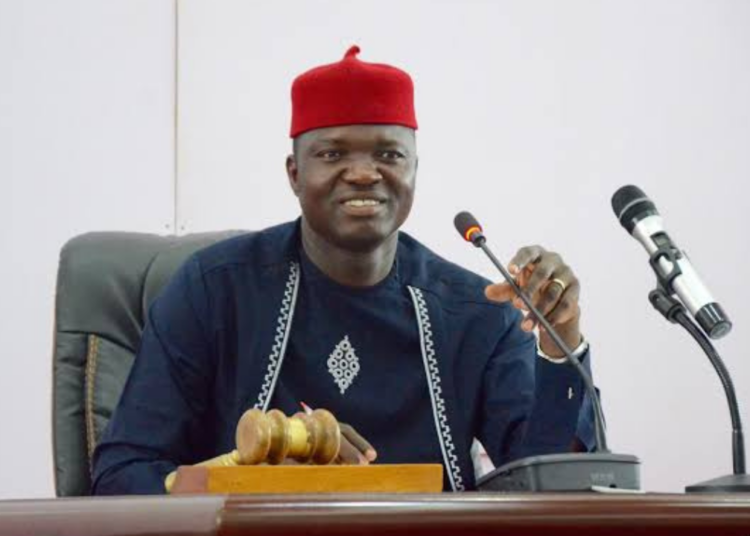A most state gov- personal aides, will cost the high cost of governance as lean government that will ernors get set state government quite a exemplified by huge salaries drastically cut down expen- to constitute fortune in terms of salaries, and allowances of public of- diture, especially salaries, their cabinets in allowances and other perks fice holders. These so-called allowances and other perks readiness for the of office. office holders constitute a of office for both public and
main task of providing good We recall that in 2020, a minute fraction of the popu- civil servants. We believe,
governance and meeting the needs and aspiration of the people, Nigerians expect that they keep their eyes on the resources available and cut their coats according to their cloth. This anticipat- ed tendency becomes even more imperative in view of the dwindling revenue and other resources which have forced government, at the federal level, to adopt some tough economic measures.
Nigerians, justifiably so, are clamouring for a lean gov- ernment and, more impor- tantly, a reduction in the cost of governance.
Curiously, in our opin- ion, it appears the call has not resonated well with the Ebonyi state governor, Francis Nwifuru, who re- cently swore in 35 newly appointed commission- ers in the state. Nwifuru’s commissioners will oversee ministries which include: Tertiary Education, Market Development and Parks, Skill Development and Job Creation, Internal Security, Environment, Information and State Orientation, Solid Minerals, Commerce and In- dustry, Human Capital De- velopment, Education (Pri- mary and Secondary), Local Government and Chieftain- cy Matters, Justice, Culture and Tourism, Border Peace and Conflict Resolution, Aviation, Budget and Plan- ning
Others are the minis- tries of Health, Youths and Sports, Women Affairs, Wa- ter Resources, Infrastruc- ture, Housing and Urban Development, Agriculture and Natural Resources, ICT, Project Monitoring & Evalu- ation, Inter Party Affairs, Special Duty, Capital City, Power and Energy, Invest- ment, and, Grant and Donor Agencies. Needless to say, these commissioners, most of whom will also appoint
Nigerian Bureau of Statis- tics (NBS) report ranked Eb- onyi as fourth poorest state in the country and first in the Southeast. Nothing has happened, recently, to sig- nificantly change the state’s precarious financial situ- ation and the intolerably high burden of poverty and warrant this unnecessary ego trip.
Even on the basis of this alone, Governor Nwifuru should have known that the state clearly has no need for such a high number of com- missioners. On the contrary, in our opinion, the fitting thing for Governor Nwifuru to do is to merge existing ministries and outrightly scrap some to avoid obvious duplication of duties. Cre- ating new ones raises more questions than answers.
Unarguably, there is a clear nexus between Nige- ria’s backwardness and the
lation yet the cost of main- taining a needlessly large number of aides by these of- ficials; high level of corrup- tion and mismanagement of public funds, as well as du- plication of functions, com- pound an already parlous situation.
Because these factors make it impossible to free up resources for infrastruc- tural development and ulti- mately provide a conducive environment for job cre- ation and poverty allevia- tion, they have continued to act as a clog in the country’s drive towards enhancing the public good.
Nigerians believe, and rightly so, that any genuine effort to reset the nation’s economy and make life more meaningful to the citizens must begin by addressing the aforementioned issues.
For instance, there has been a sustained call for a
like most Nigerians do, that one of the ways of doing this is to merge MDAs perform- ing similar functions and, right size cabinet to a rea- sonable number amidst oth- er cost-effective governance practices.
Essentially, Nigeria and indeed Nigerians, cannot afford to have a situation where the cost of providing or administering governance is above the governance it- self and wellbeing that is provided for the citizens.
There is no contesting the fact that Nigeria is cur- rently in a deep economic crisis. We recall that during the presentation of the 2022 budget and implementation rundown of the 2021 bud- get, immediate past minis- ter of finance, budget and national planning, Zainab Ahmed, revealed that in the first eight months of 2021, the country recorded N3.93 trillion revenue but spent over N6 trillion.
Needless to say, no coun- try can survive in the long- term if its expenditure keeps exceeding revenue. With the dwindling revenue from the nation’s major source of income, oil, in the face of mounting debt, what is ex- pected of a prudent resource manager is to fashion out deliberate and carefully de- signed ways of cutting down the cost of governance.
Now, more than ever be- fore, is the time for national and subnational govern- ments to cut costs and that cannot be done with an un- necessarily high number of commissioners and other political appointees as ex- emplified by Ebonyi state.
It is on the basis of this that we enjoin Governor Nwifuru to take another look at the size of his gov- ernment and hastily trim it. Ebonyi, certainly, has no need for that crowd.





